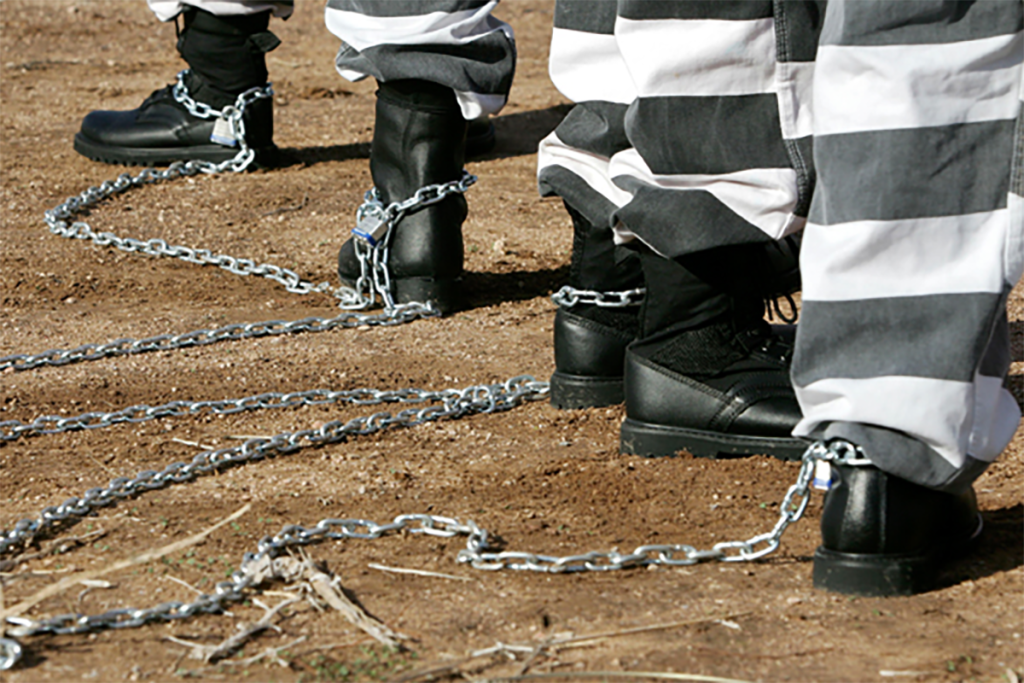DOJ announces investigation of Jefferson County Jail

The U.S. Justice Department on Wednesday announced an investigation into the treatment of adolescent inmates at the Jefferson County Jail in Birmingham, including if they were targets for physical and sexual assaults while being housed with adult inmates or kept in isolation for extended periods. The Department of Justice said investigators will assess whether juveniles are detained at the jail in conditions that pose a serious risk of harm to their physical and psychological well-being. Federal authorities said they received complaints alleging that juveniles were regularly housed with adult inmates where they were physically abused and propositioned for sex and that juveniles were improperly kept in solitary confinement or lockdown, sometimes for months at a time. “Isolation_particularly the prolonged and restrictive lockdown alleged in Jefferson County_can lead to paranoia, anxiety, depression and suicide, and exacerbate pre-existing psychological harms,” said Principal Deputy Assistant Attorney General Vanita Gupta, head of the Civil Rights Division. Jefferson County Chief Deputy Sheriff Randy Christian disputed the accusations. “The only juvenile inmates we house have committed crimes so violent or heinous that the laws of the state of Alabama require they be charged as adults. If they would rob, rape or murder you, I would likely assume they would also lie to try and make it out of adult jail. It isn’t a place for the faint of heart but it is a place they are treated fairly. We certainly have no heartburn over proving that in court should we need to.” Inmates must be at least 16 to be placed in the county jail, Christian said. The Alabama-based Southern Poverty Law Center in May of 2014 sent a letter urging DOJ to investigate conditions for juvenile detainees at the jail and praised the decision to open an investigation. “They were placed in situations where they were accused of crimes, have not been found guilty, but are housed in situations where they are constantly in fear of their physical safety as well as their sanity,” said Ebony Howard, SPLC senior staff attorney. “When they were offered support by the jail, it was in the form of being placed by themselves in a cell,” Howard said. The SPLC letter requesting an investigation said a 17 year-old had his throat cut by adult inmates at the jail. It also the second time in recent months that an Alabama correctional facility has come under federal scrutiny. The Department of Justice last week announced a settlement agreement with the state over conditions at Alabama’s only prison for women. Federal investigators last year accused the state of subjecting inmates at Julia Tutwiler Prison for Women to an environment of sexual abuse and harassment. State and federal officials agreed to changes to the prison and filed a settlement agreement in federal court. “Our commitment to finding solutions to problems in Alabama’s troubled jails and prisons is ongoing,” U.S. Attorney Joyce White Vance for the Northern District of Alabama said in a statement. Vance said, “the best solution is always a collaborative approach that encourages the state and counties to correct conditions that are constitutionally inadequate.” However, she said they will file legal action if necessary. The Special Litigation Section of the Civil Rights Division is conducting the investigation. Republished with permission of the Associated Press.
DHS, DOL refuse to investigate lawmaker claims of abuse in visa program for specialty workers
A second federal agency has refused to look into claims that companies are using a popular visa program to displace American workers with cheap labor, ALToday.com has learned. In early April, a bipartisan group of senators led by U.S. Sen. Jeff Sessions and Senate Minority Whip Dick Durbin had urged the departments of Justice, Labor, and Homeland Security to investigate alleged abuses of the H-1B visa program. On April 23, a DOL official responded stating that the agency “lacks a basis to initiate an investigation.” The Department of Homeland Security issued a response late last week saying that the agency would not be pursuing an investigation of the H-1B program. The H-1B program allows employers to hire immigrant workers with highly specialized knowledge or education. Information from the Department of Labor website says that the program is intended to help companies that can’t find American workers with needed skills. The senators claimed to have gotten reports that at least one large company, Southern California Edison, was using the program to replace and undercut wages for American workers. “The U.S. is graduating twice as many STEM students each year as find jobs in those fields, yet the H-1B program continues to provide IT companies with a large annual supply of lower-wage guest workers to hire in place of more qualified Americans,” Senators Session and Durbin said in a joint news release. “There is no ‘shortage’ of talented Americans, only a shortage of officials willing to protect them.” According to reports by the Los Angeles Times, Southern California Edison officials deny that they are seeking to displace U.S. workers, and have vowed to “cooperate with any investigation” initiated by the senators. The DHS response to the senators’ letter came from U.S. Citizenship and Immigration Services Director Leon Rodriguez. Rodriguez wrote, “… it would be premature for USCIS to speculate as to whether Southern California Edison’s participation in the H-1B program has violated any laws. If facts come to our attention that indicate violations have occurred, USCIS will take appropriate action to maintain the integrity of our programs.” In a prepared statement, the senators said they were “disappointed” with the DHS response. “We did not ask for speculation; we asked for an investigation, and an explanation of any legal obstacles to conducting such an investigation.” Meanwhile, applications for the temporary visa program reached their congressionally mandated limit for the third year in a row, CNBC reported. According to that same story, USCIS began accepting 2016 applications in early April and met the 65,000 cap in just one week.


